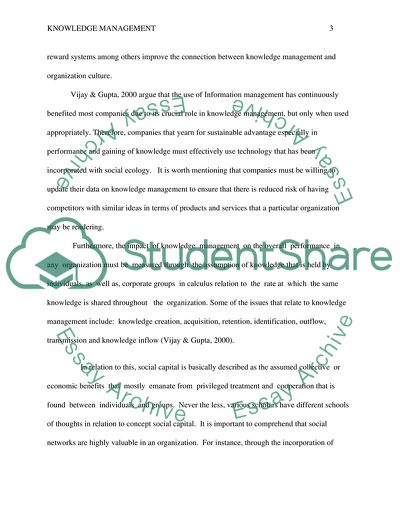Cite this document
(Main Aspects of Knowledge Management Coursework Example | Topics and Well Written Essays - 1500 words - 1, n.d.)
Main Aspects of Knowledge Management Coursework Example | Topics and Well Written Essays - 1500 words - 1. https://studentshare.org/human-resources/1810717-knowledge-management
Main Aspects of Knowledge Management Coursework Example | Topics and Well Written Essays - 1500 words - 1. https://studentshare.org/human-resources/1810717-knowledge-management
(Main Aspects of Knowledge Management Coursework Example | Topics and Well Written Essays - 1500 Words - 1)
Main Aspects of Knowledge Management Coursework Example | Topics and Well Written Essays - 1500 Words - 1. https://studentshare.org/human-resources/1810717-knowledge-management.
Main Aspects of Knowledge Management Coursework Example | Topics and Well Written Essays - 1500 Words - 1. https://studentshare.org/human-resources/1810717-knowledge-management.
“Main Aspects of Knowledge Management Coursework Example | Topics and Well Written Essays - 1500 Words - 1”. https://studentshare.org/human-resources/1810717-knowledge-management.


